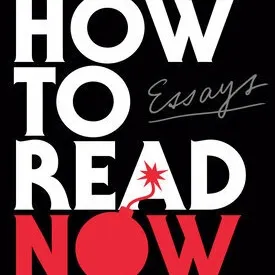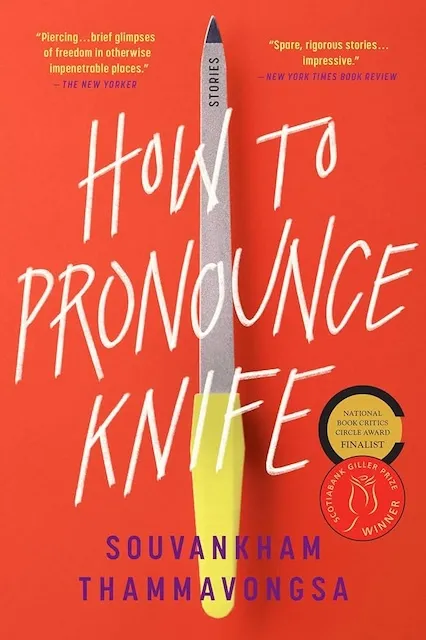How to Overanalyze Coincidences
How to Read Now, How to Pronounce Knife

Recently, by sheer coincidence, I read a couple of books whose titles both started with the words how to. What’s more, the reading of one informed and influenced my reading of the other.
(My only regret is that I was unable to complete the trifecta by also watching How To with John Wilson at the same time.)
How to Read Now
by Elaine Castillo
First off, let me confess that I didn’t read the entirety of this book. Being a collection of essays, some subjects grabbed my attention more than others. Castillo’s primary project, I think, is to call out the racial injustice that Western culture is built upon. Based on the title, I thought the focus would be more on books and publishing, but she covers all the forms of media that make up the now that we “read.”
I often bounced off Castillo’s style, which sometimes gets a bit academic, even as she discusses pop culture like The Watchmen TV show. On the other hand, there’s a fair amount of snark and passionate hostility when it’s appropriate.
To attempt to summarize the point that resonated most with me: we are often told that the act of reading (especially fiction) increases our empathy. In essence, by imagining ourselves in the world of a fictional character, we are training ourselves to step into other people’s shoes, a skill that can be applied in real life. I still agree with the psychological principle, but Castillo points out some of the biases that are embedded in this idea. In particular, there’s an expectation, sold by the publishing industry, that books by people of colour need to be stories about the specific trials and challenges of the author’s background. Empathy, in this sense, refers to the white majority’s ability to “understand” other cultures, by reading works that will “teach” them about those cultures. It’s inherently unjust, and I can’t put it any better than Castillo herself (emphasis mine):
The problem with this type of reading is that in its practical application, usually readers are encouraged—by well-meaning teachers and lazy publishing copy—to read writers of a demographic minority in order to learn things; which is to say, as a supplement for their empathy muscles, a metabolic exchange that turns writers of colour into little more than ethnographers—personal trainers, to continue the metaphor. The result is that we largely end up going to writers of colour to learn the specific—and go to white writers to feel the universal.
How to Pronounce Knife
by Souvankham Thammavongsa

This short story collection won the Giller Prize recently. The first story, after which the book is titled, had me doubting whether it was deserving. Like most of the pieces in the collection, it’s a vignette of the lives of Laotian immigrants and refugees in Canada. The title story highlights the language barrier between a child, her parents, and her teachers in school. The “punchline,” as it were, is that the parents incorrectly tell the child to pronounce the silent K in “knife.”
Because I was reading Castillo’s book concurrently, I immediately interpreted Thammavongsa’s work as a superficial packaging of the struggles of Laotian immigrants. An English learner making an embarrassing blunder is a trope that calls to mind the well-worn “being-made-fun-of-for-bringing-smelly-foods-to-school” cliché.
I do think that the opener is one of the weaker entries in the bunch, and was happy to discover the depth of the subsequent stories. My two favourites are: “Slingshot,” about a relationship between an older woman and a young man; and “Mani Pedi,” about a washed-up boxer who gets a job at his sister’s nail salon. In the latter, the main character doesn’t speak any dialogue until the very end, whereas his sister is loquacious and hilariously vulgar throughout. Impressively, his character feels fully developed over only a handful of pages, based purely on the contrast between him and his sister. The story evokes a feeling of failure which is, indeed, universal.
What am I to make of my initial reaction to this book? To put it bluntly, the thought that first went through my head was: this only won an award because they were going out of their way to be inclusive. To be clear, I was absolutely wrong to think that; but my inability to judge Thammavongsa’s book on its own merits is a scar on my mind, caused by exactly the injustices that Castillo so effectively dismantles in her essays.
